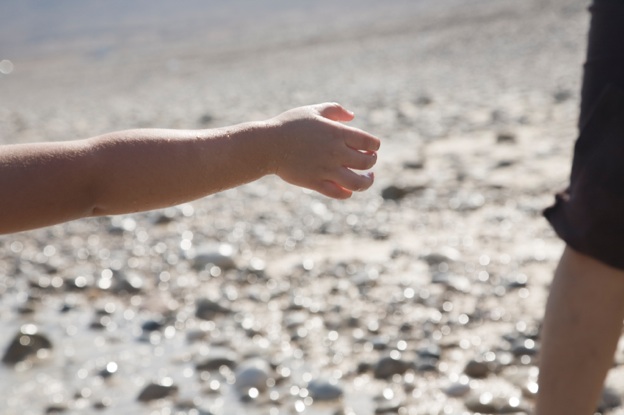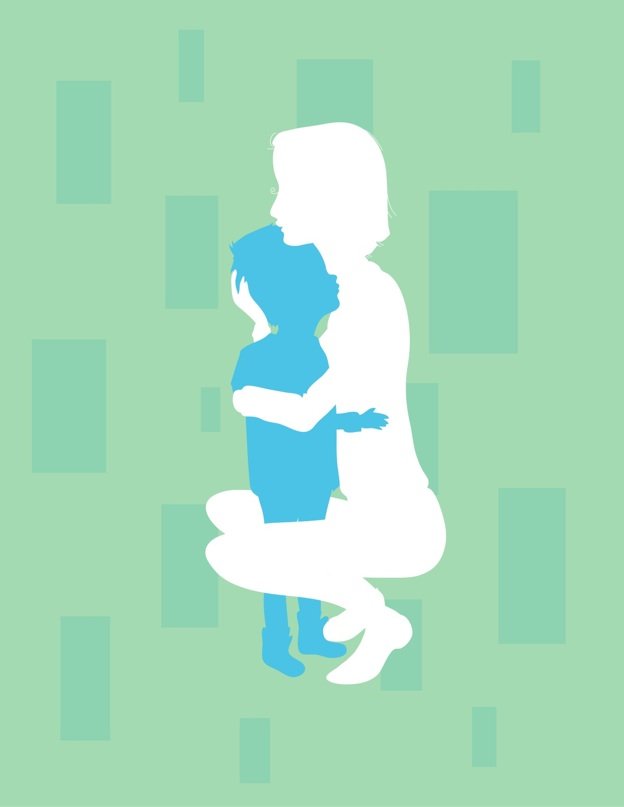SingaporeMotherhood | Parenting
January 2013
Coping with Separation Anxiety

With the beginning of the school year, I have had to deal with a contentious area for me – separation issues while dropping off my preschooler at kindergarten. At the beginning of his first year, my son protested when I tried to leave. I wanted to honour his feelings, I didn’t want to disregard his tears. I wanted to respond to his message that he was not ready for me to leave.
My gut-feeling was to hold him close; after all, how could I leave my son, with whom I feel so deeply connected, and cause him distress?
In The Discipline Book, William & Martha Sears say that separation anxiety stems from a child’s growing understanding of himself as separate from his mother. The authors also say that children are ready to separate from their main caregivers at different ages, for different lengths of time and under different circumstances.
[banner][/banner]
For example, a two-year-old may be okay to be apart from his mother if his older sibling is also around. Finding a preschool with shorter hours or delaying school altogether may also be workable options.
The child’s temperament also influences his separation at childcare or school. While highly sensitive children may react intensely, not attending preschool may mean that adjusting to primary school may be more challenging.
Parents sometimes feel that a sensitive child should attend preschool twice or thrice a week; however, many children benefit from the familiarity that comes with attending school for a few hours daily, concludes Elaine Aron in The Highly Sensitive Child.
Psychologists believe that pleasant separation experiences early on help prevent separation stress later in life. To this end, I began thinking about how I could separate from my son at preschool while staying sensitive to his individual needs.
A scenario I preferred was staying in class for half an hour or so for the first few weeks until my son had settled into the school environment and felt safe with his teacher as caregiver. This would make for a gentle entry into kindergarten life.
Alternatively, I could stay in class the first few times, sit outside the room the following day, out in the playground the next day and just outside the school the next day, making the separation process gradual and flexible, in response to my child’s cues.
It has been difficult, however, for the kindergarten teachers to accommodate my wish to cope with separation anxiety gradually. While some have been very firm that I simply leave abruptly, many others have empathised with me and found ways to ease my son’s transition to school.
The key has been communicating with teachers, expressing my thoughts and staying open to their ideas. Choosing to focus on responding to my son’s needs and supporting him, instead of insisting on differences in opinion between me and his teachers, has enabled us to work together to reach our common goal. This has gone a long way in building our parent-teacher relationship and minimising tears (mine and my son’s!).
 Because little ones have a limited understanding of time, we prepare charts with images of the things the children have to do as they get ready for school. Colourful kid-friendly calendars with pictures and stickers provide visual cues for school days and weekends.
Because little ones have a limited understanding of time, we prepare charts with images of the things the children have to do as they get ready for school. Colourful kid-friendly calendars with pictures and stickers provide visual cues for school days and weekends.
We have also coped with separation difficulties by ensuring that my son’s basic needs are met before he goes to school. Having adequate sleep and a substantial breakfast are important parts of the going-to-school routine. Having playtime in a warm bath and outdoor play at the kindergarten playground before school help him begin the school day feeling relaxed.
A consistent parting ritual when I drop the kids off at school provides a sense of familiarity and connection; this may be a quick hug, followed by telling your child that you love him and will return, and saying a funny parting phrase like ‘don’t eat toads, little child!’.
Some parents find that passing the child one of their possessions, such as a hairclip to keep for the time that they are separated, can be helpful.
Encourage the attachment relationship between teacher and child, affirm Nicholson and Parker in their landmark attachment parenting guide, Attached At The Heart. Young children do not adjust by ‘crying it out’ or ‘getting used to it’; they adjust by developing a bond with their teachers. While the child may still protest the parent’s leaving, he will quickly find comfort in his teacher’s warmth.
Nicholson and Parker suggest finding moments to reconnect with your child everyday after school. This is challenging for most of us, with household demands, care for other children or work commitments to fulfil. However, planning to set apart some
time for reconnecting, by completing chores or switching off the computer before the child returns home, helps parent and child ease into separation, while keeping their relationship whole.
Speak to your child about the separation in advance to give him a mental rehearsal of what’s to come. This minimising surprises. After-school conversations are a chance for reflection, offering insight into how he is coping and where he needs support. Responding to my son’s flickers of interest about things at school with enthusiasm has also helped him overcome his cautiousness.
My son is now blossoming at school. He enjoys playtime with his friends. He has developed a trusting relationship with his teacher, and is interacting more confidently with others.
However, I have come to realise that his conflicting emotions that come with separation may reappear, even weeks after it seemed like he had settled. Times of illness, stress at home and prolonged periods away from school make him especially sensitive to separation.
Remaining flexible and creative has helped us pass through each of those phases. I am certain that as the months go by, he will grow in his understanding that separations like school are a part of life, and that he can form special relationships with others besides me.
All content from this article, including images, cannot be reproduced without credits or written permission from SingaporeMotherhood.
Follow us on Facebook, Instagram, and Telegram for the latest article and promotion updates.





